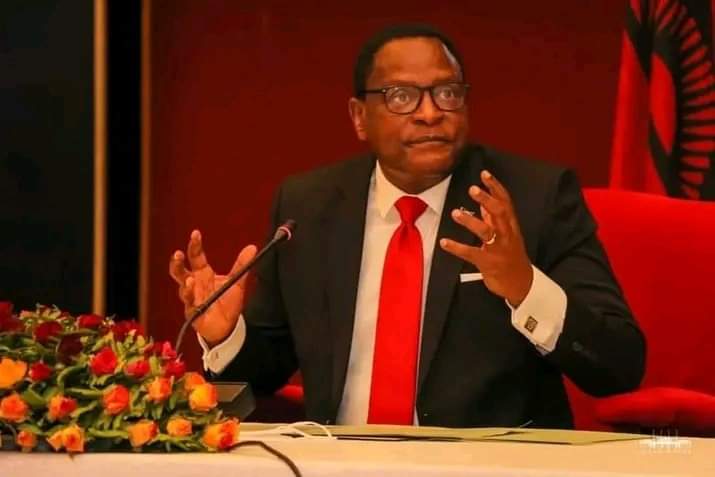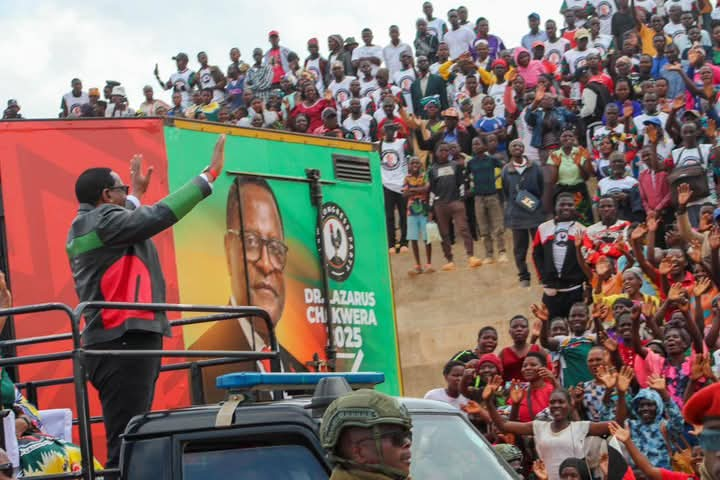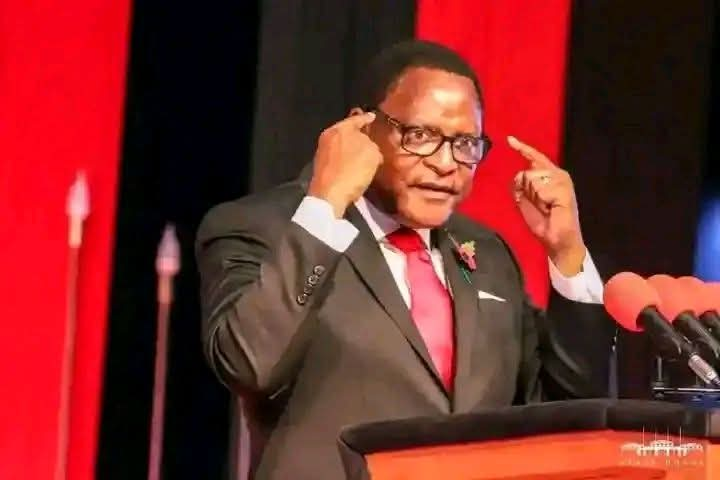Generally, the mood is sombre. Many are boiling inside. There is an undisputed visible desperation and hopelessness. People are frustrated. They think the leadership is in deep slumber.
All this courtesy of the cruel kwacha’s devaluation. Others say it’s a necessary evil on the country’s path to economic recovery.
Today’s evening, President Lazarus Chakwera to speak to such a nation in dispair. This broadly calls for serious caution. He is a man of speeches. A good orator too. Yes! But it will be mere noise if such offers no hope eventually.
Crucial moment it is! It’s tricky also as some partly fault his frequent forex-blowing-foreign trips for this economic mess. They think he is insensitive and inconsiderate. Therefore, Chakwera must strive to calm down such tempers with sensible ‘matters of national interest’.
Certainly, he might be tempted to unpack the benefits of his recent local trips. The $20 million loan from Saudi Fund for Development for the construction of the Mangochi-Makanjira road. The Afreximbank’s pledge to support Malawi’s export agenda and some more.
But what are the must-not-miss from Chakwera’s address? How does he package it to appeal to the struggling and hungry citizenry?
Catholic Commission for Justice and Peace-CCJP National Coordinator, Boniface Chibwana said the devaluations, which have triggered obscene rise in prices of basic commodities, must be his top agenda.
He expects a clear strategy on the national budget implementation with an obvious extra deficit emanating from this devaluation.
Said Chibwana: “Prices of basic commodities have skyrocketed. Why did he go up to 44% devaluation. What measures has he put in place to cushion poor Malawians?”
Again, he said the president should address the looming hunger in the country. The 2023 Global Hunger Index ranks Malawi on 88 out of 125 countries. It estimates 5.2 million people will be food insecure.
Added Chibwana: “What measures has his government put in place that no single person dies of hunger. With AIP, there are incidences of malfunctioning equipment.
“A lot of needy people are not on the list of beneficiaries in the implementation. Any explanation on the same?”
Human Rights Defenders Coalition-HRDC chairperson Gift Trapence said Malawians expect message of hope and government’s commitment on how to cushion them from the effects of this devaluation.
He said that: “The truth, etched in the fabric of our collective consciousness, is that President Chakwera, at the helm of our nation, orchestrated the painful symphony leading to (the central bank’s) fateful decision.”
Another grouping praying for a quick miracle for salvation from the harsh devaluation is Malawi Congress of Trade Unions-MCTU.
Immediately after the devaluation, it demanded a 44 percent salary increment. Its president Charles Kumchenga hopes Chakwera will tackle this concern.
“We expect him to say something on salary increment and minimum wage for the workers. Recruitment of nurses and teachers and high prices of commodities on the market,” said Kumchenga.
But some economic commentators found his address redundant, theoretical and lacking clarity. His failure to take media questions dented his statement further. However, he hopes the spelt out measures are a game changer.
Governance expert, Wonderful Mkhutche thinks the president will only add political flavour to what his minister already said. He believes the news and effects will remain the same.
“By this time, Malawians have accepted the dreadful news and no amount of words can console their hearts.
“People’s confidence in the government and the president is gone. It will take more than a political and economic miracle to savage his government’s reputation,” added Mkhutche.
And political commentator, George Phiri doubted if Malawians have some energy left to listen to Chakwera and his government.
He claimed: “The level of confidence left for Chakwera has deteriorated significantly. It is doubtful that Malawians can be convinced by anything from his mouth again this time.”
On Sunday, controversial Blantyre Archdiocese Vicar General for the Catholic Church, Monsignor Boniface Tamani told his faithfuls that the Chakwera administration has failed; citing the prevalent economic mess.
“So, I tell you this government has failed. But, blame yourselves for your wrong and silly choices during elections,” he said.
Economic commentators believe the 44 percent kwacha devaluation was a desperate but necessary attempt to seduce the ECF funds. It will help unlock other aid taps, they say.
Nonetheless, they argue the economy will remain vulnerable without addressing fundamental issues of production.
In September last year, IMF first deputy managing director Gita Gopinath commended Malawi’s bold reforms to restore economic stability, but stressed on fiscal discipline to consolidate the gains made.
Then, former Finance Minister Sosten Gwengwe stressed the ECF would have to be backed by strong fiscal and governance reforms to stabilise the local economy in the long-term.
Said Gwengwe: “The ECF is not a silver bullet on its own. We will need to continue with the reforms. We will need to continue with the fiscal discipline, we’ll need to continue doing what we’ve been doing in the PMB, even when the ECF comes back.”
So, Chakwera’s address could be viewed as a break or make to the economically struggling nation, whose public debt staggers in the region of K10 trillion.
Ironically, its brutal appetite for borrowing and senseless expenditures are far from over.
In June 2020, Chakwera, then Malawi’s opposition leader, defeated incumbent Peter Mutharika with 58.57% of the vote in the court-sanctioned presidential poll.
He made a cocktail of promises including taking Malawians to ‘Canaan’; away from ‘Egypt’ where they were hopeless. Chakwera faces another election in less than two years ahead.




